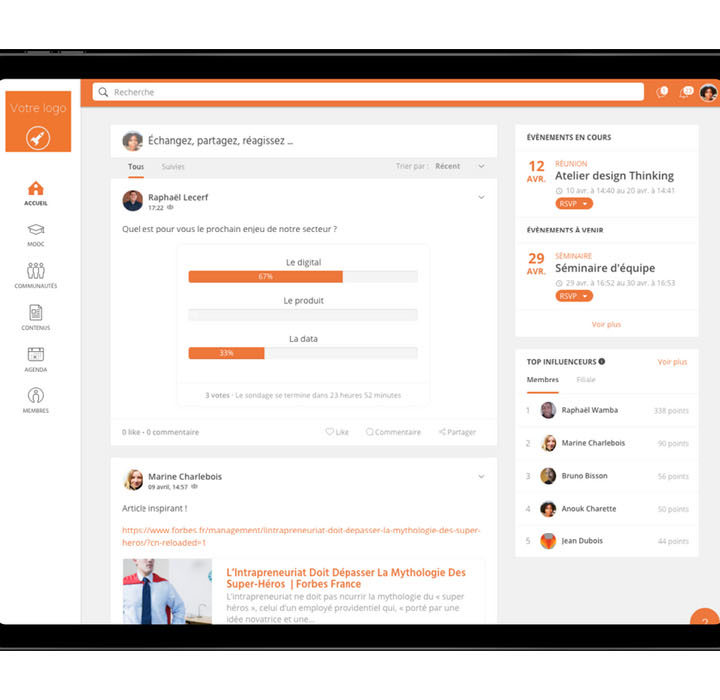Collaborative tools are struggling to break through in companies
Beeshake has just published a study on employee motivation at work. What did the study reveal?
We questioned employees from companies of different sizes to learn about the role of digital technology in motivating them. We see that the commitment of employees is closely linked to their ability to put forward ideas, give their opinion, share their knowledge, etc. As they do on the Internet! 100% of the respondents of our study believe that it is essential or important to share knowledge, and 92% believe that it is their role to suggest ideas to their company. This is particularly clear among millennials, who see being listened to as their primary source of motivation at work. But the study reveals that intelligence is not shared, and that the flow of ideas is not as fluid within the company as it is outside. Frankly, we expected that employees would highlight a problem with corporate culture. But it is a tool problem that was revealed. These results, therefore, reveal the great complexity of digital culture: tools or culture? I want to answer both: the tools may offer a concrete experience, so they must be used with a whole range of methods to create a truly efficient digital culture.
In fact, the study talks about digital transformation. The buzzword aside, where are we at now?
85% of employees surveyed feel that their company has initiated a digital transformation. So far, nothing surprising. However, this transformation is perceived as taking too long. Companies may have lacked method for this process, and may have found themselves trapped in the debate about digital culture: “tools or culture?” Of course, it is a problem of culture. But the results force us to ask whether the digital mindset depends on how it’s used? Tools, method and training: this may be the winning trio for digital transformation. In any case, our study revealed that employees were impatient to make full use of the possibilities of digital technology: the company must deal with this impatience and offer concrete solutions. This issue is topical since the Harvard Business Review published an article this month on digital intelligence and the digital quotient: the ability of employees to interact effectively with technology will boost business performance.
Beeshake is a collective intelligence platform. How does it work? To what ends?
At Beeshake, we often say that “the value of the hive is exponential to the intelligence of its bees”. Our aim is to set the collective intelligence of the company in motion, to reveal the wealth of its human capital. We, therefore, developed Beeshake as a method to reveal collective intelligence: it is based on the sharing of knowledge and skills (as a peer-to-peer system), communication that creates momentum, and collaborative innovation, a source of motivation and performance.
And you, how do you motivate your teams?
You should probably ask them: are you motivated? My philosophy is quite simple: trust and friendliness. We are a small team, so everyone should feel comfortable communicating with any team member. If my employees talk to each other, dare to try, take initiatives and move forward as a close-knit team, I will have succeeded in my job as a manager. They must also be proud of their work, which is why we celebrate all victories. It is a way of never lowering our level of excellence. I also try to involve them in subjects that go beyond their job. For example, we have co-constructed our values charter. To develop a sense of belonging, it is important to understand that you belong to a team that is moving in the same direction!
To find out more, visit beeshake.com or come and talk to us at the next event on Empower Morning 24 May (free event, subject to registration)

